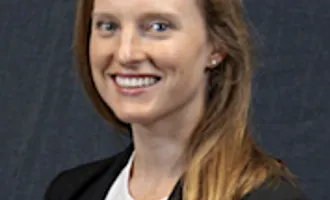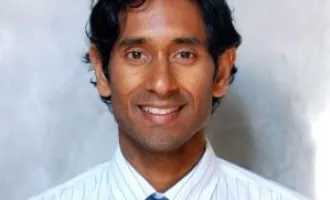
Innocence Up in Smoke
First place winner in the Synapse Storytelling Contest nonfiction category.
The morning of October 17, the soft blue light of daybreak lingered around the PICU. I lingered too, searching for a crevice to hide my bags and familiar faces to share subtle nods. I started my second day on this unit intent on watching, devoted to grasping the intricacies of this new ecosystem and clinging to anything that felt familiar. But this morning, that blue daybreak fog quickly frayed, as the usual hum of shift-change turned. But this morning, that blue daybreak fog quickly frayed, as the usual hum of shift-change turned.
The organized bustle, which I had devoutly memorialized the day prior, gave way to a collection of whispers. I listened to the voices, whose softness attempted to fight the horror of the truth. I watched, as close conversations turned into wide eyes and wider strides. I listened, as whispers were suffocated by the hash of helicopters above us.
Four pairs of feet barreled heavily up the stairs. Heaves of breaths were interrupted by parcels of information. Housefire, family of six. Two deceased. Parents in critical condition. She is eleven and he is eight. We tumbled through the trauma floor to the first room, almost ricocheting against a wall of silence. The sun shone so bright through the window that the ventilator and hospital bed were engulfed by its beams.
Before us laid a barefooted girl asleep in her pajamas, the way she had probably gone to bed the night before, the way she would have woken up before school this morning. We stepped closer and the blanket of light faded into the terrors she had endured. What of her face could be seen under the soot showed a distress even in her daze. I just watched.
She was transferred to our PICU, where she would share a wall with her brother, perhaps the way she did at home. I looked around at our other patients’ rooms, filled with parents and siblings, toys and blankets, prayers and tears. She laid in solitude, only surrounded by the whirr of her ventilator.
I watched as her first guest arrived that afternoon, an aunt exasperated from the three other hospital rooms she had just visited. She wore a robe and slippers, cemented in the moment she picked up the phone to hear the farewells of her family encircled in flames.
I watched our patient every day as her slowing ventilator and decelerating drips gave way to grimaces and wary eyes. I watched as the endotracheal tube was pulled from her mouth, and she attempted a scream with a voice we couldn’t hear. A voice hindered not just by the ashes and tubes that had previously entered her body, but by the flames and fear that surrounded her the last time she screamed. I just watched.
As she settled into wakefulness, our patient suspiciously studied the room around her. Her eyes followed each passing figure. The next morning, her eyes met mine and she handed me a purple post-it from a pad placed next to her bed. Is my family alive?
The evening of October 17, the deep blue light of dusk lingered around the Al-Ahli Arab Hospital in Gaza City. I watched the televised glimpses of families waiting outside, having just narrowly escaped their own burning homes. I watched as the newscast cut to aerial views of the hospital courtyard. I watched a billow of smoke consume the hospital too. I just watched.



